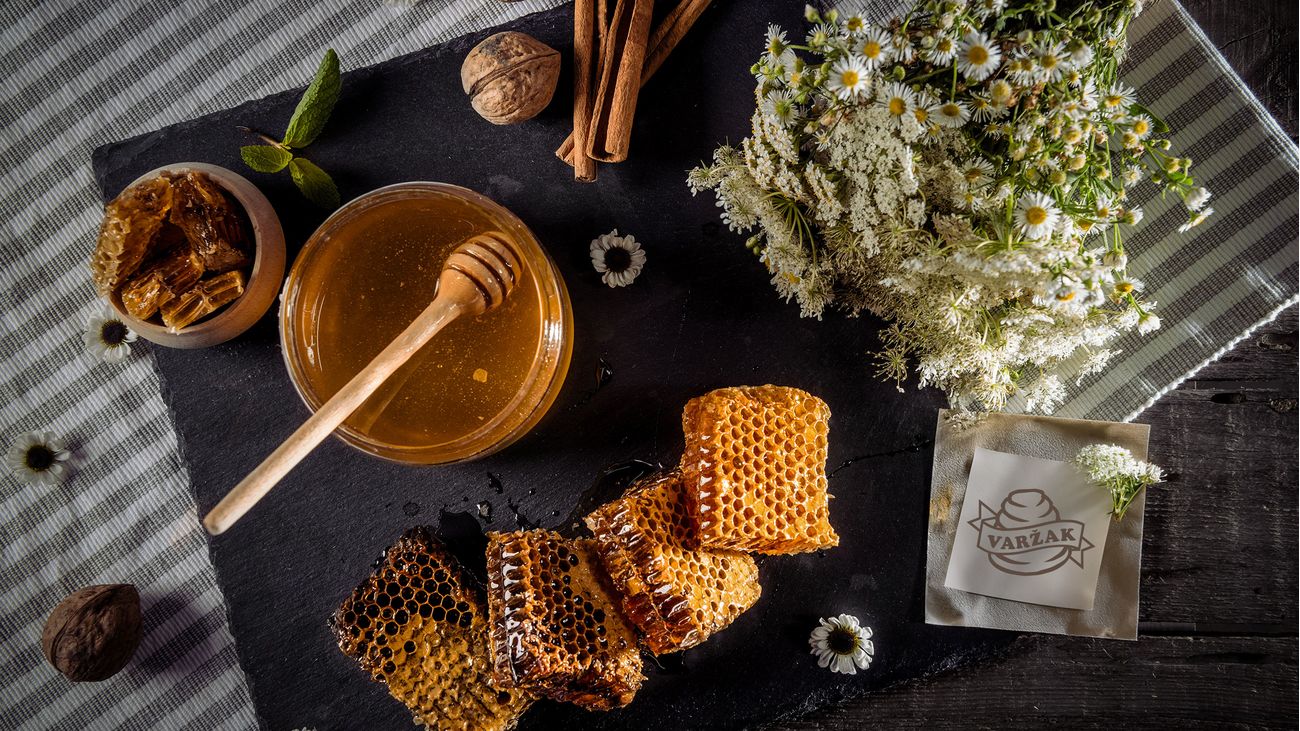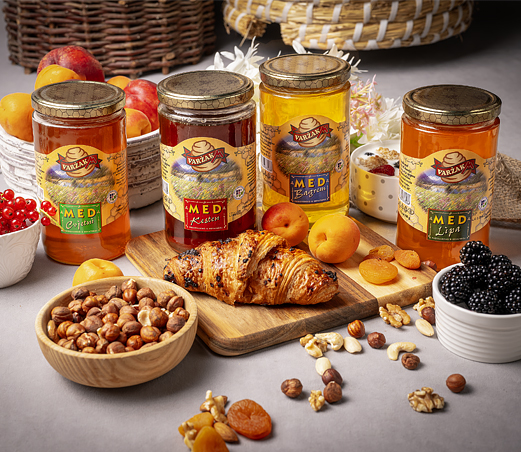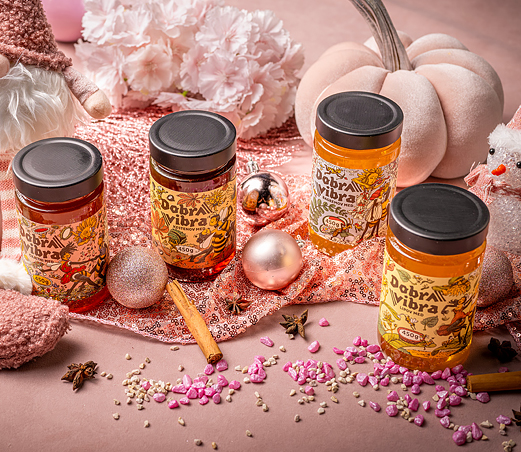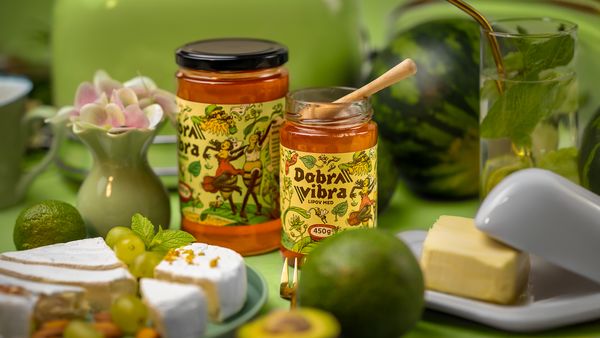Let’s peek inside the jar and discover what makes honey so good for the body
Honey’s natural composition and the key to its unique nutritional and health benefits

Honey is one of those gifts of nature that has been passed down, almost unchanged, from generation to generation. Its presence in the human diet dates back to the ancient Egyptians, Greeks, and Romans, who used it not only as a sweetener but also as a remedy, a preservative, and even a cosmetic. Today, although we have countless types of industrial sweeteners, honey has retained a special place in our diet—precisely because it offers a blend of natural flavor, nutritional value, and beneficial properties. What makes it exceptional, however, is not just its sweetness, but the complex chemical composition and natural purity that bees so carefully create.
Natural composition—A small treasure trove of nutrients
At first glance, honey may seem like a simple mix of sweet ingredients, but behind that golden liquid lies an exceptionally complex natural matrix. It is primarily composed of natural sugars—mostly fructose and glucose—which together make up roughly 80% of its total composition. The remaining ~20% is water, along with a whole range of valuable compounds that give it nutritional and functional value: vitamins, minerals, organic acids, enzymes, amino acids, and aromatic compounds.
Honey is a natural source of B‑complex vitamins (B1, B2, B3, B5, B6) and vitamin C, as well as minerals such as calcium, magnesium, potassium, phosphorus, iron, and zinc—combinations that support bone health, the nervous system, immune function, and energy levels. It is especially prized for its antioxidants, primarily flavonoids and phenolic acids, which help neutralize free radicals in the body, reduce oxidative stress, slow the aging process, and contribute to long‑term health.
What is particularly fascinating is that the composition of honey depends on the plants bees visit, which means each variety carries its own unique nutritional “signature,” creating not only a gastronomic experience but also a diverse set of potential health benefits.
A natural ally for your immune system
When it comes to supporting immunity, honey is one of the first natural products that comes to mind. Its antibacterial and anti‑inflammatory properties stem from naturally occurring substances such as hydrogen peroxide, its low pH, and a high sugar concentration, which together create an environment unfavorable to harmful microorganisms. In addition to helping prevent colds and flu, honey can soothe a sore throat, calm a cough, and support faster recovery. Combined with lemon and ginger, it becomes a powerful ally in colder months, and for allergies—especially with local honey—tiny amounts of pollen may contribute to gradual desensitization.
Energy that comes from nature
For those seeking a natural and balanced source of energy, honey is a true gem among foods. Its high content of simple sugars, such as glucose and fructose, enables rapid absorption into the bloodstream, so it almost immediately becomes fuel for muscles and the brain. Unlike refined sugar, which delivers a brief “spike” followed by a sharp drop, honey—thanks to its natural enzymes, minerals, and phytonutrients—provides a steadier, gentler rise in energy. These additional compounds slow the breakdown of sugars, allowing the body to use energy more gradually and efficiently.
This makes it an ideal choice not only for athletes who want natural support for endurance, but also for anyone who needs “quick yet smart energy” during the workday. A small spoonful of honey before physical activity can deliver an extra boost for better performance, while consuming it after a workout helps muscles recover faster and replenishes depleted glycogen stores. In addition, honey contains antioxidants that help reduce exercise‑induced oxidative stress, further supporting recovery and overall vitality.

Gentle support for healthy digestion
For centuries, honey has been used as a natural aid for digestive discomfort. Its prebiotic properties encourage the growth of beneficial gut bacteria, such as Lactobacillus and Bifidobacterium, helping improve digestion and strengthen the body’s defenses. Its mild antibacterial action also supports a balanced gut microbiota, and in cases of mild stomach or intestinal irritation it may help ease symptoms. Interestingly, traditional medicine has used honey for wound and burn care thanks to its antimicrobial qualities—another testament to its versatility.
Honey is not just food—it’s an experience
One of honey’s special charms is that every jar tells the story of its origin. Acacia honey, pale and delicate, reflects fragrant spring acacia groves. Wildflower honey brings the diversity of meadow blooms and the scents of summer, while chestnut honey carries the dark, pleasantly bitter notes of forest clearings. Linden honey offers subtly bittersweet tones and an aroma reminiscent of calm summer evenings. Tasting honey is not only about sweetness—it is about discovering colors, aromas, and textures born of the bees’ intricate work and nature’s abundance.
How to get the most out of every spoonful
When you invest in quality honey, it’s important to know how to store and use it properly to preserve its nutritional and aromatic value. Honey is naturally stable and can last for years without spoiling, but proper storage is key. Keep it at room temperature, in a tightly sealed glass jar, away from direct sunlight and heat sources. Excess heat can speed up crystallization or alter its color and aroma, while moisture can encourage fermentation.
When adding honey to tea, milk, or other hot drinks, it’s best to wait until the liquid cools below 40 °C—this helps preserve its delicate enzymes, vitamins, and natural aromatic compounds that are essential to its health benefits. That way, every spoonful keeps its full potential—not only in sweetness but also in beneficial effects.
And don’t worry about crystallization—it’s a natural process that confirms honey’s authenticity. If you want to return honey to a liquid state, place the jar in a bowl of warm water, but never heat it directly at high temperatures. This way you’ll enjoy every spoonful just as the bees made it—rich, aromatic, and full of life.

Honey is more than a simple sweetener—it is a functional, nutrient‑dense, and culturally meaningful food that unites pleasure with well‑being. Every jar contains a sophisticated blend of natural sugars, minerals, vitamins, enzymes, and antioxidants, creating a perfect balance between flavor and health. When you take a spoonful of honey, you’re choosing more than sweetness—you’re choosing an experience, a tradition, and the power of nature.












